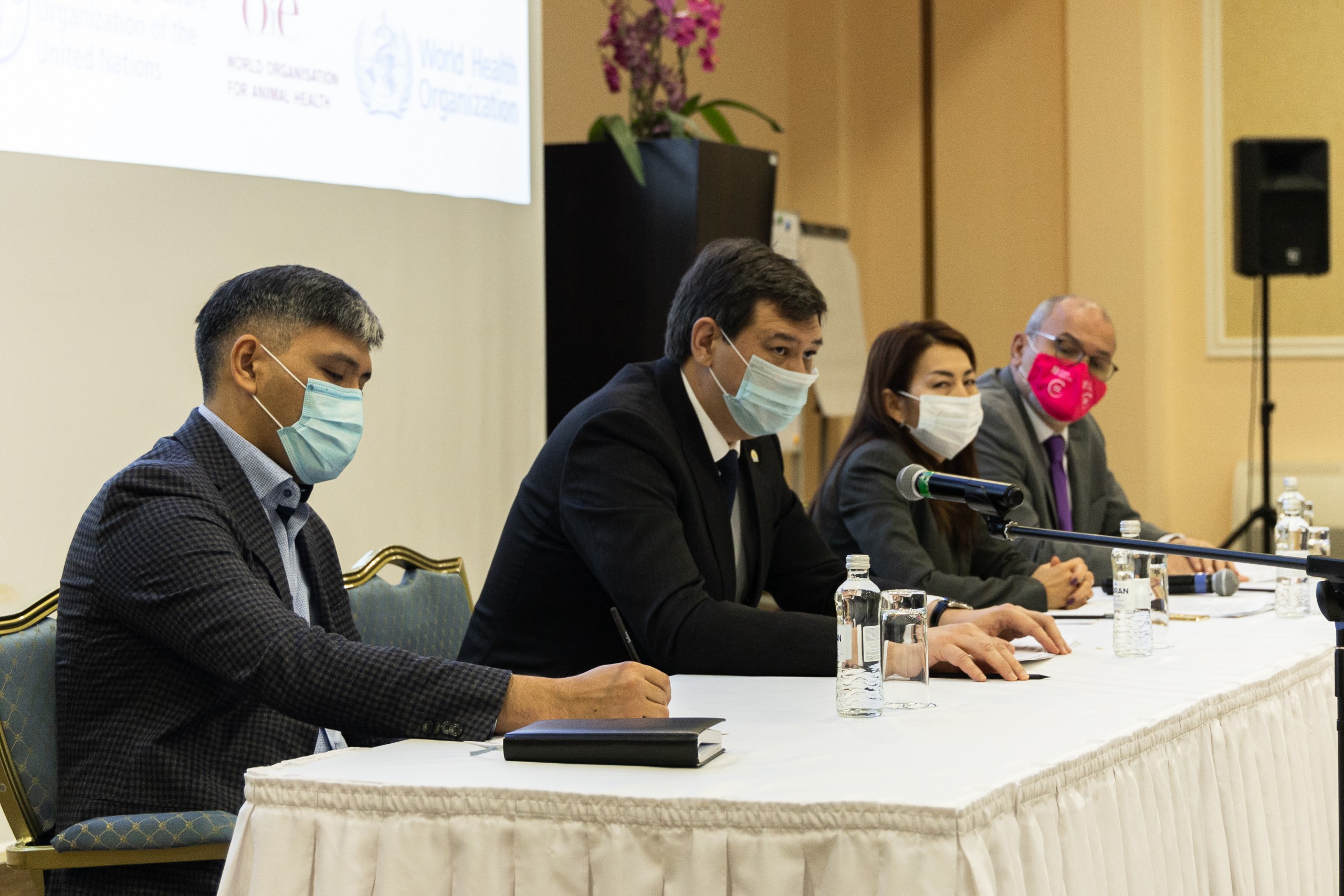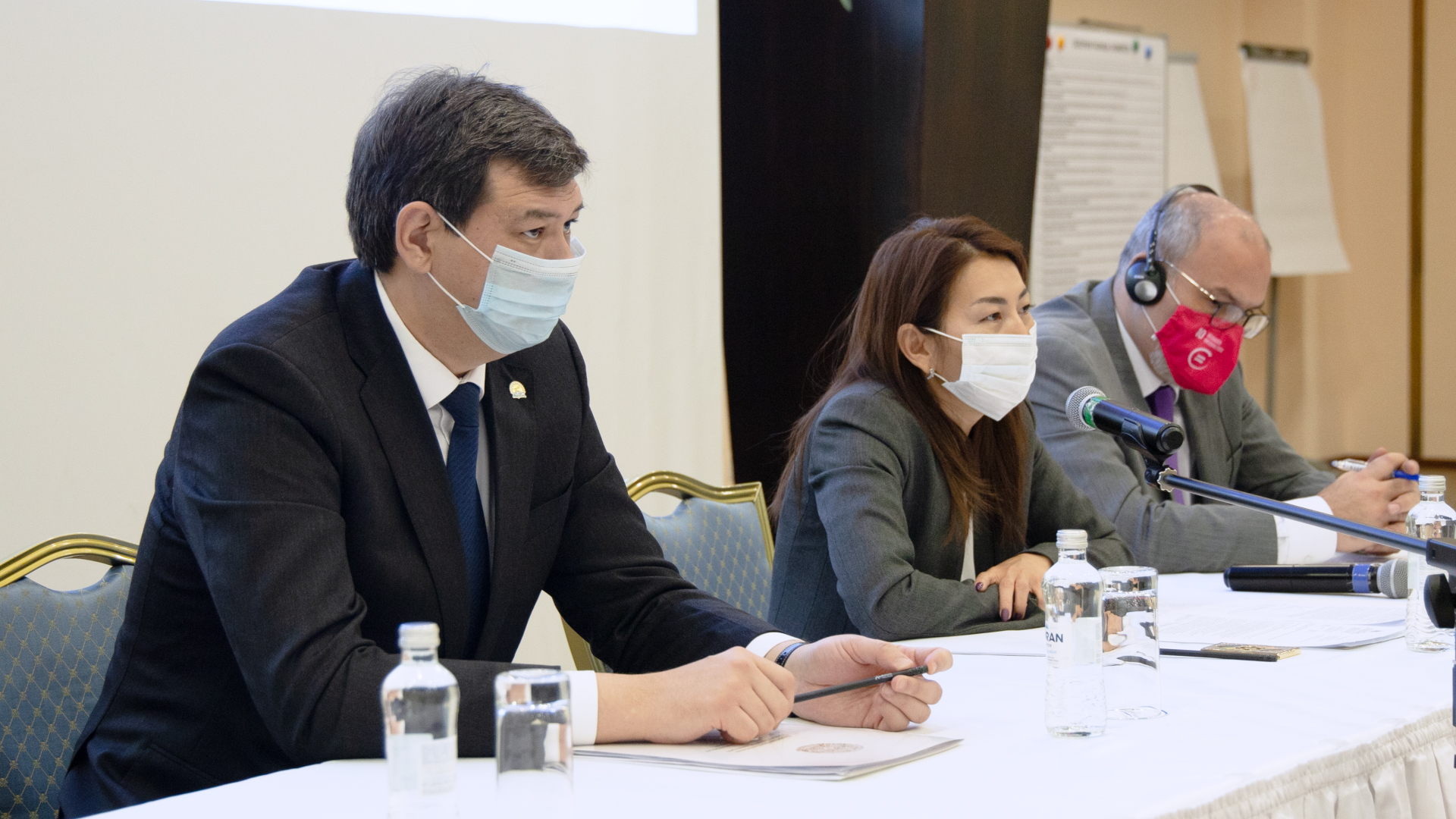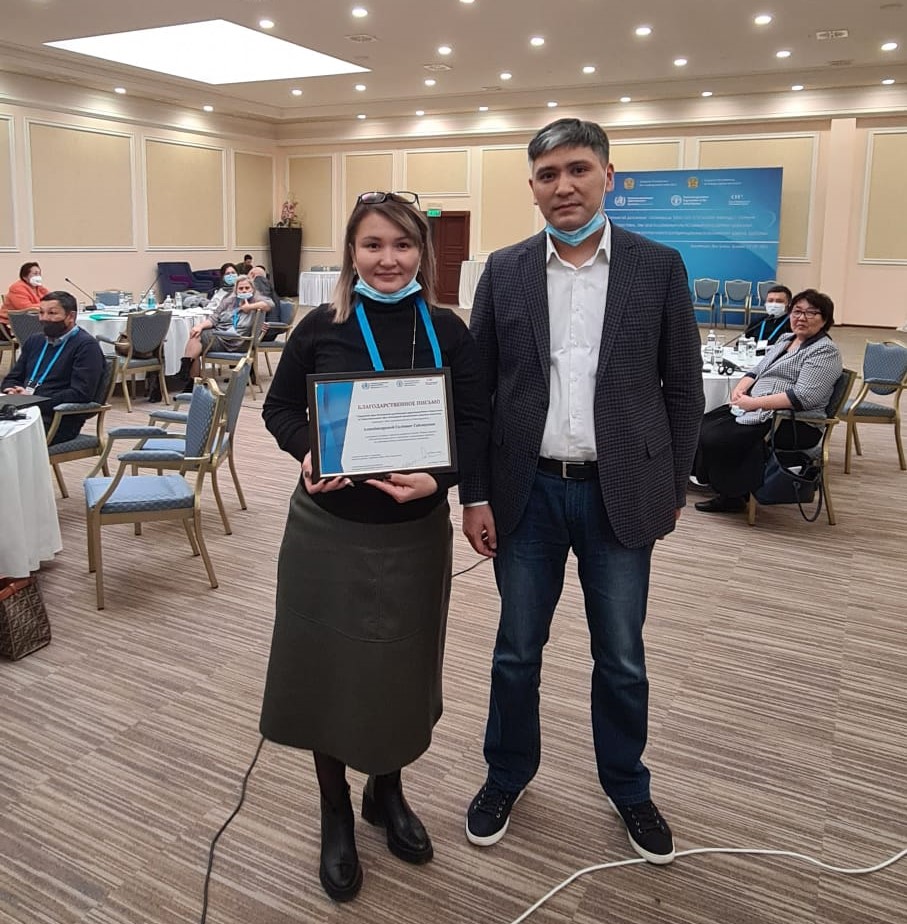



The Country Office of the World Health Organization in Kazakhstan together with the OIE Subregional Representation for Central Asia in Nur-Sultan held a three-day workshop on the application of a multi-sectoral “One Health” approach in combating zoonotic diseases in Nur-Sultan, Kazakhstan, from 27 to 29 October 2021.
“The inter-sectoral approach “One Health” is relevant in addressing threats at the intersection of human, animal health, and environmental well-being, including ensuring biological and food safety, and combating antibiotic resistance. Zoonoses represent most human infectious diseases, affecting national and global health security,” said the Vice Minister of Health of the Republic of Kazakhstan E. Kiyasov at the opening of the workshop.
“One Health” Concept comes across three systems: human health, animal health, and environment focusing on shared risks and the strong influence of these sectors on each other. The main goal of this Concept is to strengthen the interaction and cooperation of three sectors to increase the potential for joint efforts. This interaction is the most relevant to the prevention of risks and threats in these sectors, and joint actions can be more effective. For example, zoonoses are a challenge for both human and animal health. The emergence and development of the global COVID-19 pandemic also have a reservoir among animals, and these issues stand at the intersection of the interaction of three sectors, where elements of the environment are factors in the transmission of these risks. Therefore, the initiative of international organisations, WHO/FAO/OIE to increase the potential for intersectoral interaction in Central Asia is timely and necessary,” says G. Nurtazina, Deputy Chairman of the Committee for Veterinary Control and Supervision of the Ministry of Agriculture of the Republic of Kazakhstan, OIE Delegate.
“The efforts of one sector alone cannot prevent or eliminate the problem. Today’s workshop brings together different sectors at the same table to strengthen national policies towards more comprehensive and sustainable action against zoonotic diseases,” said WHO Senior Health Adviser, Dr Omar Saleh.
According to M. Taitubayev, Head of the OIE Sub-Regional Representation for Central Asia, this workshop is an example of the possibility of solving common problems within the framework of “One Health” that is aimed at uniting the efforts of the parties responsible for different aspects that ultimately affect human health and well-being.
Based on the results of the workshop, a draft Action Plan was developed that will serve as the basis for considering the introduction of an operational tool for strengthening intersectoral interaction and subsequently will allow Kazakhstan to include intersectoral coordination in state policy; gather information from relevant sectors on past and current efforts to use a multi-sectoral «One Health» approach to tackle zoonotic diseases and other common challenges at the intersection of human, animal health and environment, and their plans for the future; ensure consensus, coordination, sustainable and transparent communication across all relevant sectors when planning and implementing collaborative management and control of zoonotic diseases through “One Health”.



